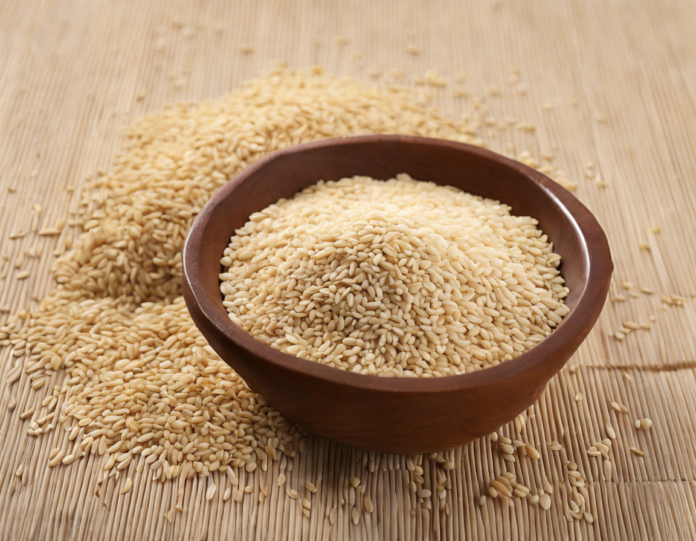Introduction:
Til, known as sesame seeds in English, hold a special place in Indian culture and cuisine. These tiny powerhouse seeds are not only packed with nutrients but also play a significant role in traditional practices and rituals. In Hindi, sesame seeds are referred to as “til.” In this article, we will delve into the various aspects of til, including its nutritional value, health benefits, culinary uses, and cultural significance.
Nutritional Value of Til:
Til seeds are a nutritional powerhouse, rich in essential nutrients such as protein, healthy fats, fiber, vitamins, and minerals. They are an excellent source of calcium, iron, magnesium, zinc, and phosphorus. The seeds also contain antioxidants like sesamol and sesamin, which have numerous health benefits.
Health Benefits of Til:
1. Heart Health: The unsaturated fats in sesame seeds can help lower bad cholesterol levels and reduce the risk of heart disease.
2. Bone Health: The high calcium content in til seeds is beneficial for maintaining bone health and preventing conditions like osteoporosis.
3. Digestive Health: The fiber in sesame seeds aids in digestion and helps prevent constipation.
4. Antioxidant Properties: Sesame seeds are rich in antioxidants, which help protect cells from damage caused by free radicals.
5. Blood Sugar Control: Some studies suggest that consuming sesame seeds may help improve blood sugar levels and insulin sensitivity.
Culinary Uses of Til:
Til seeds are a versatile ingredient used in various Indian dishes, both sweet and savory. Some popular culinary uses of til include:
– Til Chikki: A delicious sweet made with jaggery and sesame seeds.
– Til Ladoo: Sweet balls made with roasted sesame seeds, jaggery, and ghee.
– Til ki Chutney: A flavorful chutney made with sesame seeds, peanuts, and spices.
– Til Ka Tel: Sesame oil, commonly used for cooking in Indian households.
– Til Ka Achaar: Pickle made with sesame seeds, mustard, and spices.
Cultural Significance of Til:
In Indian culture, sesame seeds hold symbolic and religious significance. Til is considered auspicious and is used in various rituals and ceremonies. Some common cultural practices involving til include:
– Offering til ladoo to guests during festivals like Makar Sankranti.
– Using sesame seeds in ayurvedic preparations for their health benefits.
– Applying sesame oil during ceremonial oil baths and massages.
Frequently Asked Questions (FAQs) about Til:
Q1: Are sesame seeds and til the same thing?
A1: Yes, sesame seeds are known as “til” in Hindi.
Q2: How should sesame seeds be stored to maintain their freshness?
A2: Sesame seeds should be stored in an airtight container in a cool, dry place to prevent them from going rancid.
Q3: Can sesame seeds be eaten raw?
A3: Yes, sesame seeds can be consumed raw, roasted, or ground into a paste for various culinary purposes.
Q4: Are there any allergies associated with sesame seeds?
A4: Sesame seed allergies are not uncommon and can cause allergic reactions in some individuals. It is advisable to consult a healthcare provider if you suspect an allergy.
Q5: Can sesame seeds help with weight loss?
A5: While sesame seeds are nutrient-dense and can be a healthy addition to a weight loss diet, they should be consumed in moderation due to their calorie content.
In conclusion, til or sesame seeds are more than just a culinary ingredient; they are a treasure trove of nutrition and cultural significance in India. Incorporating til seeds into your diet can not only enhance the taste of your dishes but also provide a myriad of health benefits. So, the next time you enjoy a til ladoo or sprinkle some sesame seeds on your salad, remember the rich history and goodness that these tiny seeds bring to your plate.




